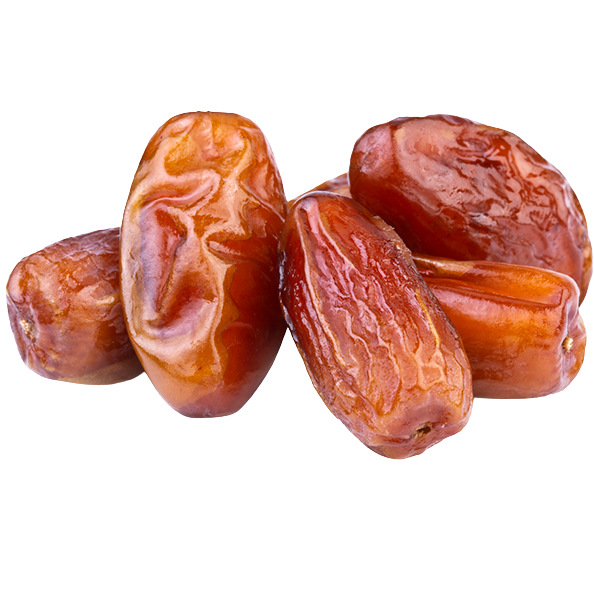
Dates
Dates are the sweet fruits of the Phoenix dactylifera tree, commonly known as the date palm. Native to the Middle East and North Africa, this tall palm thrives in hot, arid climates and has been cultivated for thousands of years for its highly nutritious and energy-rich fruit.
Harvesting takes place when the dates ripen and turn from yellow or red to deep brown. Farmers often climb the trees or use lifts to access the fruit clusters, which are harvested by hand. The dates are then cleaned, sorted, and sometimes sun-dried or processed for storage and distribution.
As a spice, dates are not used in the traditional sense, but their natural sweetness and sticky texture make them a popular ingredient in spiced dishes, energy bars, chutneys, and baking, often as a sugar substitute or binding agent in spiced desserts and sauces.
Medicinally, dates are prized in many cultures for their health-boosting properties. They are:
- High in fiber, supporting digestive health
- Rich in natural sugars for quick energy
- A source of essential minerals like potassium, magnesium, and iron
- Used to ease labor in late pregnancy (as supported by some studies)
- Believed to help reduce inflammation and support brain and heart health

